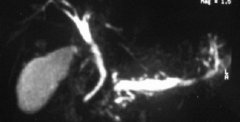读医学网
2012年加拿大肺癌调强放疗指南
发布时间:2014-05-20 09:24 类别:呼吸系统疾病 标签:risk escalation limiting control 来源:丁香园
Intensity-modulated radiotherapy (IMRT) is an advancement in radiotherapy that uses intensity-modulated beams, which can provide multiple intensity levels for any single beam direction and any single source position, allowing shaped distributions and dose gradients with narrower margins than previously possible. IMRT is ideal for treating complex treatment volumes and avoiding close proximity organs at risk that may be dose limiting, allowing dose escalation (to improve tumour control) and/or reducing normal tissue complications (through organ at risk sparing). Given these potential advantages of IMRT and the availability of IMRT planning systems and linear accelerators, IMRT has been introduced in a number of disease sites. This systematic review examined the evidence for IMRT in the treatment of lung cancer in order to quantify the potential benefits and to make recommendations for radiation treatment programmes considering adopting IMRT. This review revealed two retrospective cohort studies reporting on cancer outcomes, which was considered insufficient on which to make evidence-based recommendations. However, due to the known dosimetric properties of IMRT and extrapolating from clinical outcomes from other disease sites, IMRT should be considered for lung cancer patients where the tumour is in close proximity to an organ at risk, where the target volume includes a large volume of an organ at risk, or in scenarios where dose escalation would be potentially beneficial while minimising normal tissue toxicity. Until randomised data are available, future research in IMRT for lung cancer should include a comprehensive prospective assessment of the relevant outcomes, including tumour control and normal tissue toxicity.
- 猜你会喜欢....





